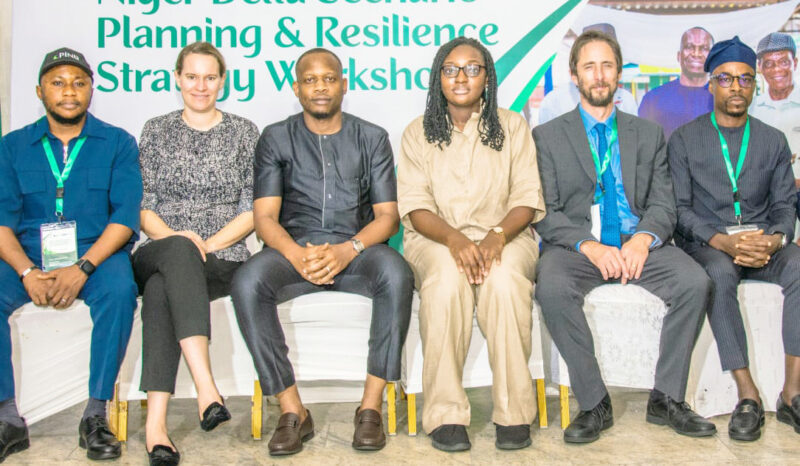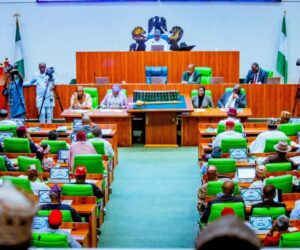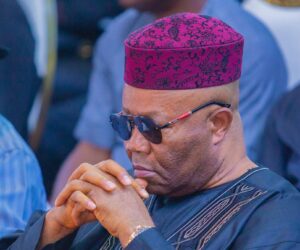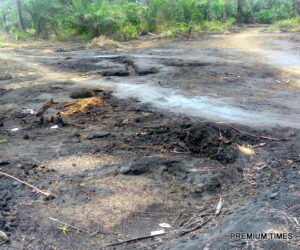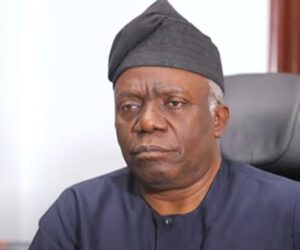1
The Foundation for Partnership Initiatives in the Niger Delta (PIND), in partnership with the Deutsche Gesellschaft für Internationale Zusammenarbeit (GIZ) GmbH, the Office for Strategic Preparedness and Resilience (OSPRE), and The Fund for Peace (FFP), has concluded a groundbreaking three-day workshop on data-driven resilience planning in Port Harcourt, Rivers State.
The workshop supported by the ECOWAS Peace, Security and Governance (EPSG) Project, co-financed by the European Union (EU) and the German Federal Ministry for Economic Cooperation and Development (BMZ), focused on strengthening crisis preparedness and resilience across the Niger Delta.
Held under the theme “From Risk to Resilience: Building a Future-Ready Niger Delta,” the event brought together more than 100 participants drawn from government institutions, civil society, academia, the private sector, traditional authorities, and the media. The aim was to co-create strategies that would help the region anticipate, adapt to, and recover from shocks related to climate change, insecurity, and governance challenges.
Using advanced analytical and forecasting tools, including the Fragile States Index (FSI), the State Resilience Index (SRI), and the Crisis Sensitivity Simulator (CSS), participants leveraged AI-powered risk modeling developed by the Fund for Peace and SAS to identify systemic vulnerabilities and design practical, data-driven response strategies tailored to the Niger Delta’s realities.
Speaking at the event, the Executive Director of PIND Foundation, Mr. Sam Ogbemi Daibo, represented by Mr. David Udofia, emphasised the importance of data, foresight, and collaboration in transforming uncertainty into opportunity.
“This workshop demonstrates how data and partnerships can redefine how we respond to crises. Resilience must become a shared responsibility among communities, institutions, and sectors,” he said. “The Niger Delta’s future depends on our collective ability to anticipate challenges rather than react to them.”
The initiative drew representatives from the National Emergency Management Agency (NEMA), State Emergency Management Agencies (SEMA), the Nigerian Meteorological Agency (NiMet), Hydrocarbon Pollution Remediation Project (HYPREP), the Nigeria Police Force, and the Nigeria Security and Civil Defence Corps (NSCDC). Ministries of Environment and Agriculture were also represented, alongside civil society groups such as the “Partners for Peace (P4P)” network.
Delegates from Ghana’s “Regional Peace Council for the Northern and Oti regions” joined the workshop, providing a valuable platform for cross-border collaboration and knowledge exchange on crisis preparedness within West Africa.
Mr. Nate Haken, Senior Advisor for Research and Innovation at The Fund for Peace described the initiative as a powerful example of collaborative problem solving.
“This project shows how partnerships between government, civil society, and academia can strengthen peace and security,” he said. “By linking data to decision-making, we are laying the groundwork for a resilient Niger Delta and a safer West Africa.”
Over the three-day session, participants engaged in contextual analysis, scenario development, and AI-assisted “red teaming” exercises to test assumptions and design integrated resilience plans. The workshop produced key deliverables including a Niger Delta Resilience Strategy, a detailed cenario planning report and a replicable resilience framework adaptable to other regions in Nigeria and across the subregion.
According to Mr. Edkobi Anthony Chukwuemeka of OSPRE, the process strengthened the ability of institutions to connect early warning systems with early action mechanisms.
“This process reinforces our capacity to ensure that preparedness becomes an integral part of governance and sustainable development,” he said.
The workshop’s outcomes will be embedded within existing coordination platforms such as the P4P network and state-level emergency management systems, ensuring that insights from the sessions translate into concrete, on-the-ground actions.
As Nigeria and the wider West African region continue to grapple with the twin threats of climate change and insecurity, the Niger Delta Scenario Planning Workshop has set a new benchmark for anticipatory governance, where foresight, innovation, and collaboration are the cornerstones of building a resilient future.

